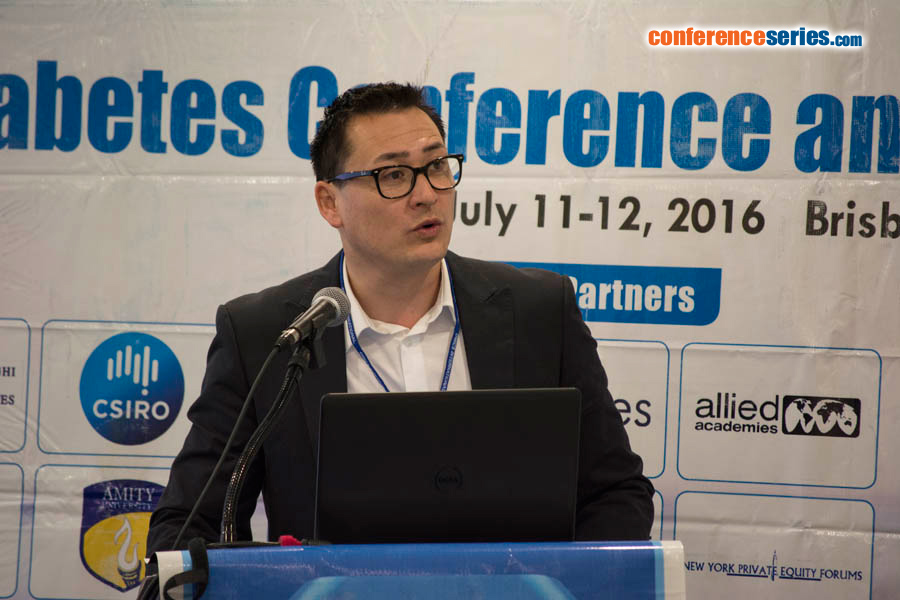
Grant Brinkworth
Commonwealth Scientific and Industrial Research Organisation,Australia
Title: The role of very low carbohydrate diets for enhancing type 2 diabetes management
Biography
Biography: Grant Brinkworth
Abstract
Despite the popularity of very low carbohydrate diets, limited well-controlled studies have extensively examined their health effects in type 2 diabetes (T2D). In this outpatient study, 115 obese adults with T2D were randomly assigned to consume either an energy restricted, very low carbohydrate, low saturated fat diet (LC; 14% carbohydrate: 28% protein: 58% fat) or a planned isocaloric high unrefined carbohydrate, low fat diet (HC; 53% carbohydrate: 17% protein: 30% fat) combined with a structured exercise program (3x/week) for 52 weeks. Weight, body composition, glycemic control, cardiovascular disease (CVD) risk, renal function and psychological wellbeing were assessed. Both groups had similar completion rates (LC=41[71%],HC=37[65%]) and reductions in body weight (9.1%), fat mass, blood pressure (-6/-6 mmHg), HbA1c (-1%) and fasting glucose (-1.4mmol/L); no diet effect (P≥0.09). Compared to HC, LC achieved a 2 and 3-fold greater reduction in diabetes medication use and glycaemic variability, respectively. Triglycerides decreased (LC -0.4±0.1,HC -0.01±0.1 mmol/L;P=0.001) and HDL-C increased (LC 0.1±0.03, HC 0.06±0.04 mmol/L;P=0.002) more on LC, with no difference between groups for LDL-C reductions (LC -0.1±0.1, HC -0.2±0.1 mmol/L, P=0.76). Both diets produced similar responses in endothelial function (assessed by flow-mediated dilatation), mood state, quality of life, cognitive performance and renal function markers. Overall, both LC and HC diets achieved comparable weight loss and improvements in HbA1c, fasting glucose, psychological well being and maintained renal function. However, the LC yielded greater reductions in glucose lowering medication requirements, greater diurnal blood glucose stability and improved lipid profile suggesting LC are advantageous and safe for T2D management.




